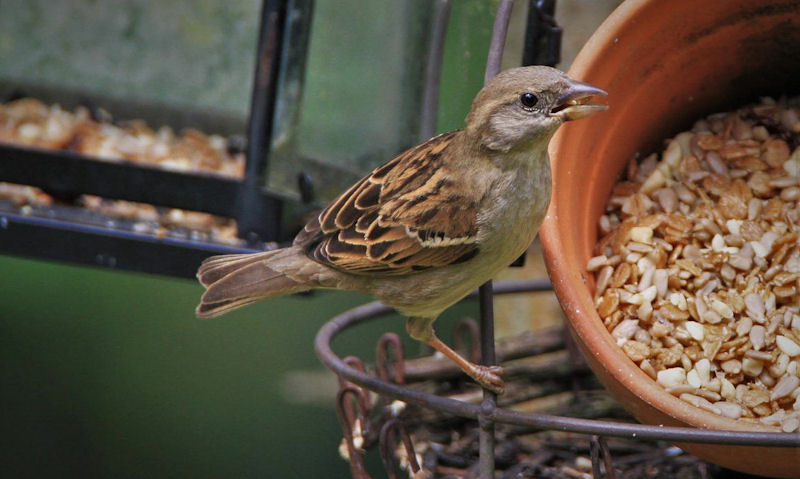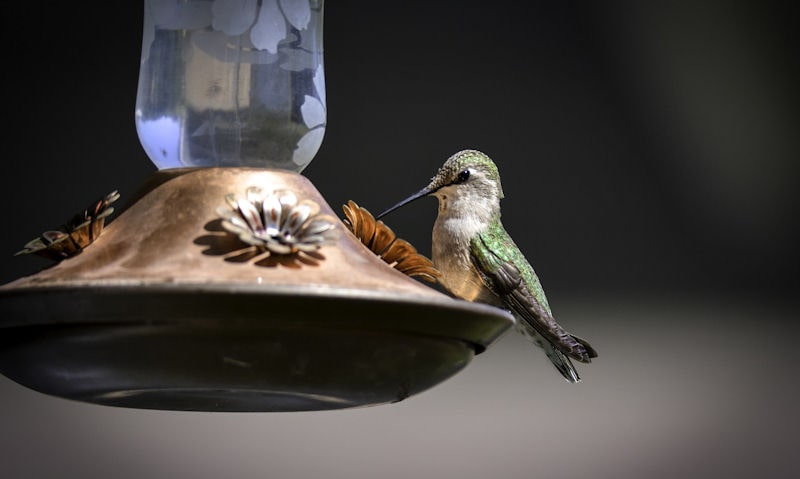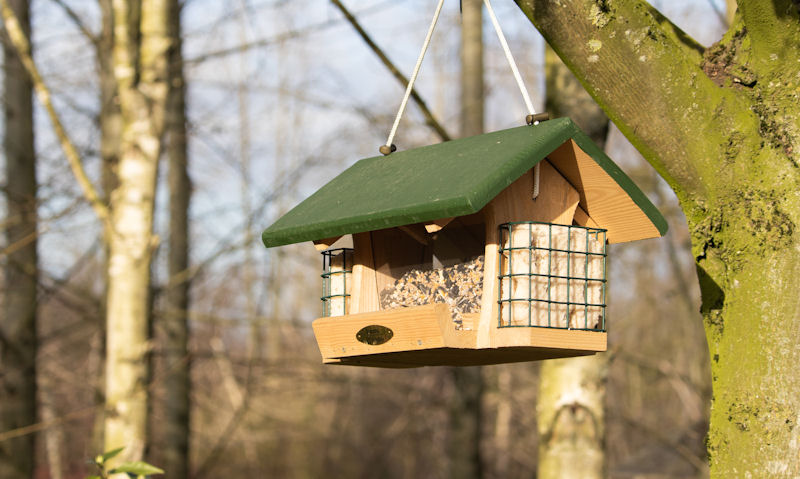Can you overfeed backyard birds
Rather than look at yourself as the person responsible for overfeeding backyard birds, it can be certain birds only who're overdoing it which isn't your fault at all.
You can't overfeed backyard birds because its a choice made by an occasional greedy wild bird only, who will on the rare occasion over-eat. Visible signs could be weight-gain and sluggishness at bird feeder. In the meantime, continue to provide the correct amount of bird feed while avoiding too much waste.
In all honesty I don't ever recall noticing any wild bird looking at bit on the chubby side, and therefore I don't believe its possible to overfeed backyard birds.
So birds will decide to overdo it once in a while and if so, may regret it as they become slow and sluggish, but again I don't believe I have witnessed it personally - and its possible you haven't either - ever seen a wild bird suffering the consequence of over-eating at a bird feeders.
Do expect to occasional see Blackbirds to Sparrows looking somewhat fat in winter time mind - as wild birds tend to put on weight to keep warm.
Can your common backyard birds at bird feeders eat more than they need, absolutely they can.
Its just when the occasional bird does, its likely to be an occurrence unbeknownst to you or I, because it can be so minor in appearance.
You can certainly provide too much feed for wild birds on your platform feeder or stored within a suspended bird feeder.
Yet its unlikely one or two regularly visiting birds will eat too much of it as they know when to stop, and really don't stick around that long to eat so much.
If you feel your wild birds are getting a little overweight, it certainly can help to look at what bird feed you are providing them - with an option to reduce fatty suet or homemade varieties and kitchen scraps - if indeed that is what you are providing.
Birds unlikely to eat too much
Reality of the matter is your common backyard birds have evolved enough to avoid overdoing it in the wild or in our backyards.
Certainly can wild birds overdo it once in a while but that is extremely rare.
Birds will begin to feel like they've eaten more than they can handle and therefore will be known to stop eating and fly away, while they still can.
Only way you'd personally know when a bird or two is over-eating, is if you can distinguish the over-eating bird who continues to return back to your bird feeder on a regularly basis, for the entire day.
Birds are unlikely to overdo it and therefore you can't really overfeed backyard birds.
Keep an eye on overweight birds in spring and summer time as they should be at their healthiest. In winter, birds are allowed to get a bit chubby due to the need of keeping warm and eating more in an effort to survive the cold winter months.
Overfeeding leads to waste only
With probably far less then 1% of your common backyard birds who may overdo it at feeders - or when foraging in natural foliage within your yard - its not really an issue you really need to worry about.
What you must be more concerned about is in fact overfeeding birds which will just result in a lot of waste.
How much you replenish bird feeder with can depend although to continue to top up an unused seed, suet and peanut feeder, will just lead to waste.
Birds won't eat more and therefore you can't overfeed them when an abundance of bird feed is suddenly made available. All that happens is the bird feed goes to waste as there's simply isn't enough wild birds frequenting your yard at this time.
So you see while overfeeding backyard birds isn't really a thing to worry about, going the extra mile to put more bird feed in feeders is only going to result in more waste.
Continue to fill feeders
In the meantime its important to continue as normal when replenishing bird feeders with an accurate amount of bird feed varieties that won't go to waste.
Sure, the occasional backyard bird might over-eat at times but it will quickly recover.
What is more important is not punishing other visiting birds to your yard, by simply pulling out feeding them just because you've seen a single bird eat to much.
Fatty Mcfat bird will learn its lesson and when its ha=d a good rest, it should feed at a normal pace again.
Continue to fill bird feeders with seeds and peanut, while fattier foods like suet or homemade fat based foods and scraps could be delayed to at least until winter time - as birds fatten up in winter in order to survive the cold.
It is possible only fatty foods made available could result in birds unnecessarily fattening up in spring or summer time, but it isn't an issue 99.9% of us have to deal with.
Conclude
Admittedly it can happen but is such a rare occurrence for your common backyard bird to over-eat at feeders, you should really think nothing else of it.
You can't really overfeed backyard birds as its only the problematic single bird who will over-eat; of which it isn't going to be noticeable unless the unhealthy bird can visibly be seen to be sluggish while struggling to fly at the same time.
Birds are highly unlikely to eat to much and if you do decide to provide far more bird feed in feeders than you know won't be eaten; that isn't to say any bird is going to eat more, just because an abundance of feed is now made available.
Overfeeding backyard birds doesn't encourage greedy birds, but rather bird feed mixes just go to waste while stored away in bird feeders.
Continue to feed birds as normal if you feel some of your regularly visiting birds are over-doing it, as it will soon be sorted as birds learn their lesson.
Remember, wild birds do eat more in winter time in order to keep warm and fill up on fatty food to survive the cold winter months. If you find birds are appearing fatter at this time of year, then don't think much else of it.
When your backyard birds appear to be getting fatter in spring through summer time, that's OK too - although a bit odd for adult birds - while the offspring will naturally put on weight in order to grow big and strong.


